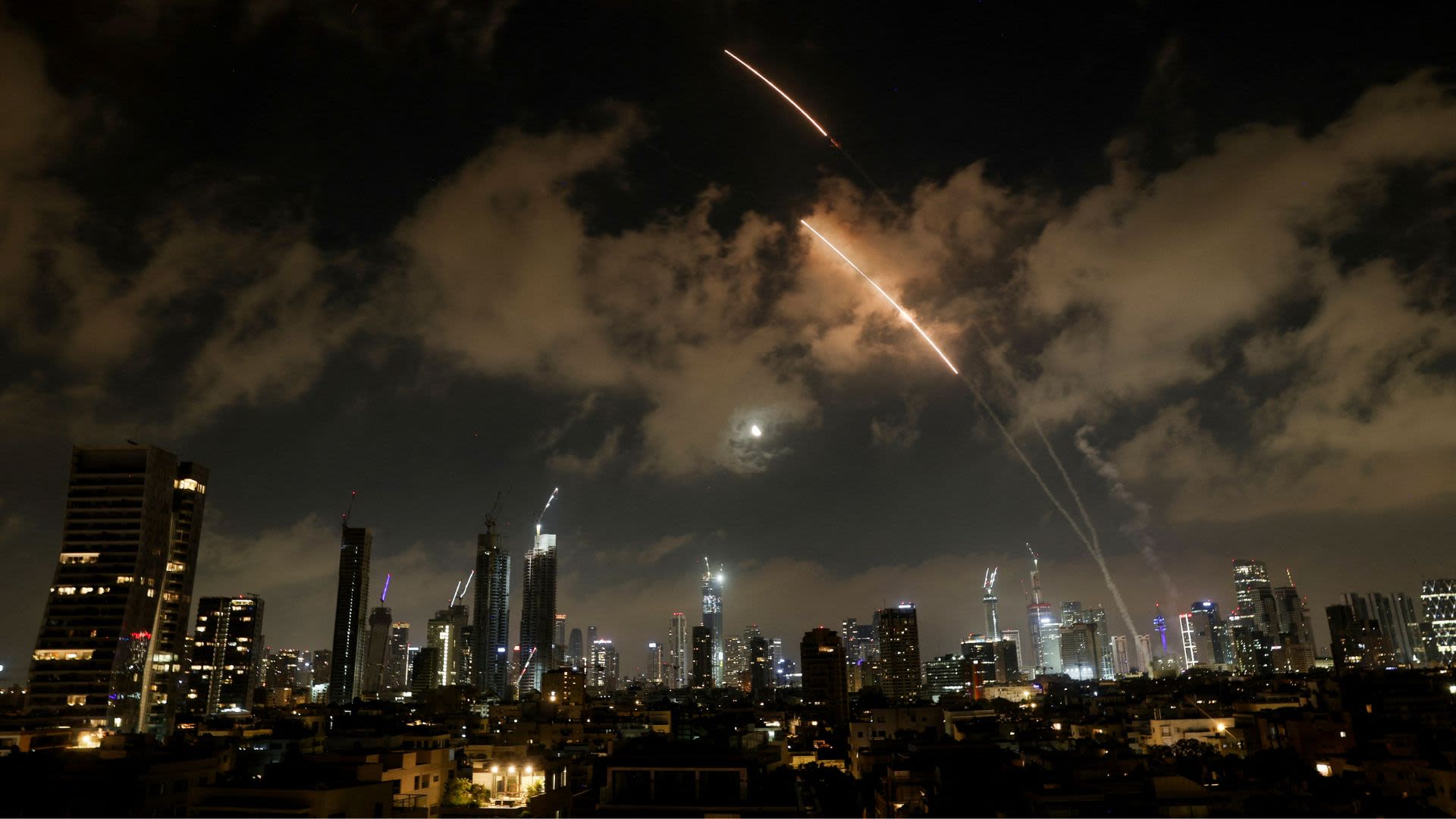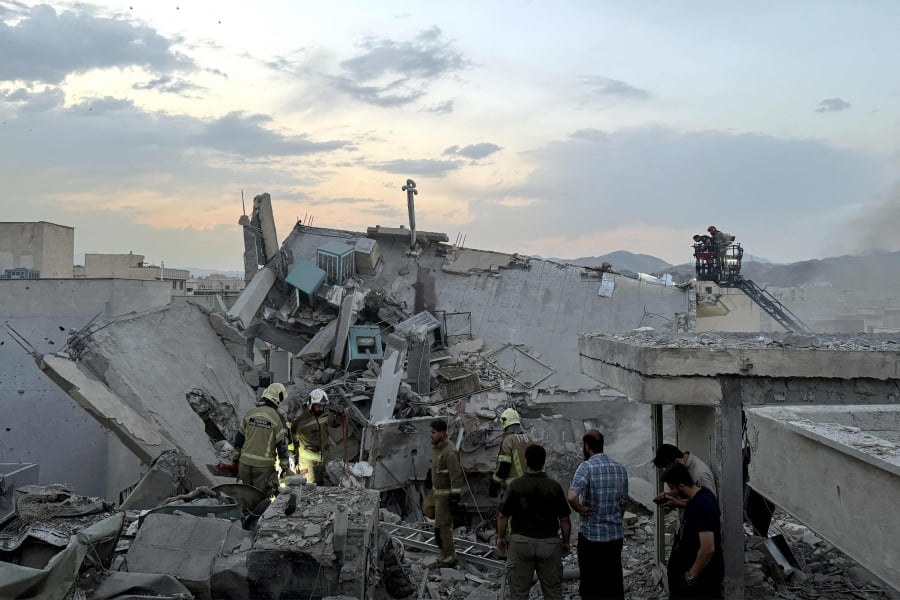What Bangladesh can learn from the Iran-Israel war

What's going on between Iran and Israel isn't just another Middle Eastern conflict that we can watch from afar and think it doesn't concern us. Because it does. Not directly, not yet. But the way the West spins it, the tools they use to shift regimes, and the internal vulnerabilities that make such regime shifts possible—all of that is a warning wrapped in a real-time geopolitical lesson.
Iran's problem isn't just Israel. The war has laid bare something deeper: an internal brittleness. And that's what we need to look at. If your home is divided, if your agencies don't speak to each other, if data leaks like a broken tap, then no foreign policy in the world can save you. This is where Bangladesh stands at a crossroads. Not because we're next in line for a war, but because we're vulnerable in a different, quieter, more dangerous way.
In Treacherous Alliance: The Secret Dealings of Israel, Iran, and the United States, Trita Parsi makes it painfully clear how regime vulnerability often begins from within. Iran didn't lose key commanders because its borders were breached. It lost them because its systems were. As Parsi notes, "internal competition among security agencies and lack of coherent oversight" allowed foreign actors to manipulate and assassinate with almost surgical precision. The West didn't need to invade—they walked in through Iran's own back doors.
This is something we in Bangladesh need to take seriously. We often speak of "foreign interference", but when you get right down to it, the most dangerous enemy is the one within. Intelligence silos, political infighting, divided civil-military relations, are the kinds of gaps that get exploited. And that's the real takeaway: before we even think about foreign policy, we need to clean house.
Let's not pretend the West isn't still playing its old games. Butthey've updated their software, so to speak. It's no longer about boots on the ground—it's about hearts and minds, hashtags and headlines. William Blum's classic Killing Hope: U.S. Military and CIA Interventions Since World War II gives a deep dive into the mechanisms of regime change, from Guatemala to Libya. The methods shift, but the pattern remains: identify division, fuel dissent, apply pressure, then step back and let it burn.
What makes this even more dangerous now is that with social media, surveillance capitalism, and hyper-connected systems, it's easier than ever to destabilise a country without ever firing a shot. Blum documents how often "human rights" or "democracy promotion" are used as soft fronts for deeper strategic goals. The script is predictable: paint the regime as corrupt, amplify internal conflict, freeze their access to global systems, and watch the legitimacy crumble from the inside.
Bangladesh is not exempt. We are already experiencing soft pressures—from conditional loans to global labour narratives to digital data regulation. This is not paranoia; this is historical pattern recognition.
If there's one thing Iran lacked, besides internal unity, it was a clear, codified doctrine that linked its civilian institutions, military, and intelligence in a fluid, responsive way. And Bangladesh? We're in an even worse spot. We have pieces—a few national strategies, a security wing here, an IT ministry there—but no integrated doctrine that acts as the spine of national defence and strategic projection.
So, here's a rough sketch of what that doctrine could look like. Call it the National Cohesion and Strategic Intelligence Doctrine (NCSID). At its core, it would weave together four key sectors—intelligence, strategic communication, digital sovereignty, and civil-military integration.
Intelligence synchronisation bureau: This would act as a coordination hub linking military intelligence, border security, digital surveillance, and political intelligence. No more turf wars between agencies. Shared data. Shared accountability. Central command.
Cyber sovereignty task force: With data being the new oil, this task force would focus on protecting national databases, countering misinformation, and defending critical infrastructure from foreign intrusion.
Strategic communication unit: This arm would monitor global and local media narratives, shape diplomatic messaging, and build psychological resilience within the population. Think of it as a pre-emptive PR and soft-power body that actually understands algorithms, sentiment shifts, and strategic silence.
Domestic cohesion council: This council would include top leadership from political, academic, security, and civil sectors. Its mission? Identify and neutralise internal divisions before they become open wounds. Think of it as a firewall against social fracture.
The doctrine would also outline protocols for inter-agency drills, real-time threat response, narrative management, and coordinated diplomatic stances. Importantly, it would be revised annually based on global trends and emerging threats.
This isn't about turning Bangladesh into a surveillance state. It's about developing a smart, flexible framework that ensures we aren't caught napping while others draw up the map of our future.
Bangladesh needs unity, not just as a slogan but as an operating principle. In Killing Hope, Blum describes how external players consistently succeed not because of their brilliance but because of local divisions. They didn't create the cracks—they just widened them.
And in Treacherous Alliance, Parsi goes further to show how strategic misalignment inside Iran became a gift to Israel's intelligence community. They didn't win—they exploited. That's a distinction we need to burn into our strategic memory.
We are not yet in a state of war, but we are in a state of vulnerability. And that is far more dangerous.
Bangladesh can't expect to build an influential foreign policy if we're constantly tripping over our own politics. Before we go into forums waving flags and talking regional stability, we need to stabilise our own institutions, close the communication gap between agencies, and learn to move like a nation, not a collection of factions. We've learned, if we're paying attention, that Iran's downfall wasn't written in Tel Aviv—it was etched in Tehran. And that's our mirror. Let's not wait to be taught the hard way. Let's write our own doctrine. Let's build something that holds when things fall. Because if we don't, someone else will. And by then, it might be too late.
Alauddin Mohammad is joint member secretary of National Citizen Party (NCP) and executive director at Institute of Policy, Governance and Development (IPGAD).
Views expressed in this article are the author's own.
Follow The Daily Star Opinion on Facebook for the latest opinions, commentaries and analyses by experts and professionals. To contribute your article or letter to The Daily Star Opinion, see our guidelines for submission.




 For all latest news, follow The Daily Star's Google News channel.
For all latest news, follow The Daily Star's Google News channel. 

Comments